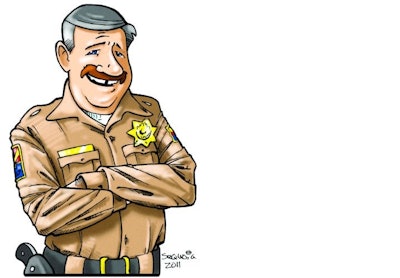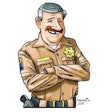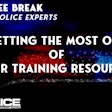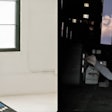 Illustration: Sequoia Blankenship
Illustration: Sequoia Blankenship
OK, gang, it's time for my annual attitude check. I hope it's apparent after all these years that I am a big believer in mindset. "Having your mind right" is a critical concept that forms a basis for basic, and in-service, training. It is one thing to have a skill but, more importantly, believing in your ability to win with that skill is the goal of all training. Remember this: training is the long-term modification of behavior. If you walk off the range and a week later you are not shooting any better, or walk off the mat and a month later cannot do that cuffing technique, then no training has occurred.
In addition, let us be clear about another critical point: it's not the training staff's responsibility to make you harder to kill; it's yours! This is your "Locus of Control" and winners place it solely in their own bailiwick, and not in the training staff's or the administration's. Take control of your own life, your skills, and your happiness. Enough of the lecture. Now let us get down to some basic mindset exercises that will prepare you to hit the streets.
First, whenever you are about to carry out any police action, such as drive down an ally, cuff a suspect, do a quick peek, or pull over a violator, ask yourself why you are doing what you are doing. "Why do I cuff quickly and place the subject off balance? Because research found the point of first contact was the trigger for resistance, and I want to be totally prepared." This is "pre-loading" your mind for action; it's cocking your brain, so to speak. Running through the OODA loop in a physical confrontation must occur in fractions of a second, and there is no time to "ramp up" for a struggle when resistance is initiated. Preparation through pre-loading is vital.
I hear all you trainers shouting, "Smith, you are talking about the anticipatory mindset we have been preaching for decades; this is nothing new!" Exactly. I spend a great deal of time reviewing use-of-force videos and talking to winners, and I am passing along the fact that I see those who do well using this mindset, and those caught off guard not using it. The "why or why not exercise" forces us to use our reflective mindset, a mental state of recalling a skill or idea we need in the context of the threat or threats we face.
"Why do I quick peek before rounding a corner?" This is a question that allows us to reflect on the advantage of this tactic, and reminds us how vulnerable we are when we neglect it. If you are not quick peeking anymore, ask yourself, "Why not?" Do you have some special skill that allows you to perceive a threat without looking? Does your body armor make you feel invincible? Has routine "detrained" you so much that your officer safety skills are left in the classroom, or on the mat? If you find you are asking yourself "Why not," then you need to remind yourself about the significant risks you face every day.
When Chuck Remsburg wrote about "preparation not paranoia" almost 40 years ago, he was dead on about where we needed to focus our officer safety training. In all these decades, we have attempted to directly apply training to the reduction of officers killed annually, but this tactic is only as effective as we are in implementing it. The rise of body cameras has given us insight into successes and failures in confrontations, but the coach in me still points at the top performers and says, "Why don't we do it that way?"
And that way is with our minds "psyched" for action, mentally prepared; emotionally strong; continuing to show that our training has truly made a difference, and our long-term performance is composed of competence, confidence, and winning. Do not fail to slice the pie, and then ask yourself, "Why not?" Unless you have the risks controlled with some other resource, you have to silently admit to yourself that you don't really care about yourself or those counting on you.
Your first responsibility is to take care of yourself. Unless you do, you cannot help your brothers and sisters, protect the community, or get home to those who need you most. And that's a "Why or Why Not" scenario you don't want to put them through.
Dave Smith is an internationally recognized law enforcement trainer and is the creator of "JD Buck Savage." You can follow Buck on Twitter at @thebucksavage.













